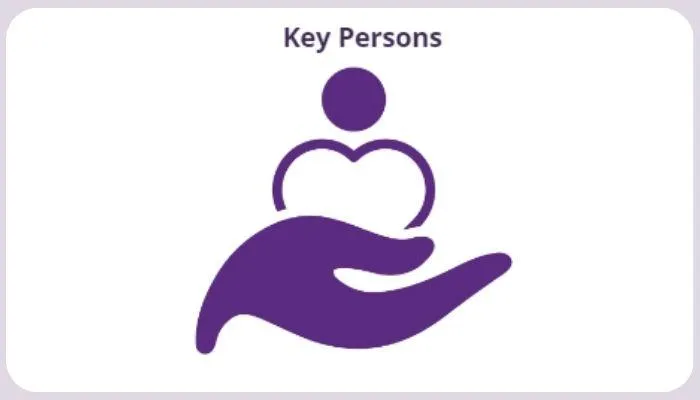Every child's well-being matters.
Case Review Articles
Quick access:
VICTIMS
ADULT ACTIONS
Alison Kelly – data issue
Amina Noor (FGM)
Quick access:
VICTIMS
ADULT ACTIONS
Alison Kelly – data issue
Amina Noor (FGM)

Why Are Key Persons in the Early Years So Important for Children and Their Families?
The key person approach is a cornerstone of quality early years practice, ensuring that every child and family is supported, understood, and valued. A key person is a dedicated practitioner assigned to a small group of children, taking responsibility for their individual care, learning, and emotional needs. This approach fosters strong, trusting relationships that are essential for children’s development and wellbeing while providing families with a consistent point of contact.
Supporting children’s development and safeguarding
Young children thrive when they feel safe, secure, and nurtured. The key person plays a vital role in creating this foundation, offering emotional support and ensuring children build a strong attachment to a trusted adult. This attachment allows children to explore their environment with confidence, knowing they have a secure base to return to when needed.
From a safeguarding perspective, the key person is well-placed to observe and respond to any changes in a child’s behaviour, physical condition, or emotional state. By knowing the child’s baseline behaviours and routines, the key person can quickly identify potential signs of distress or harm and take appropriate action to protect the child.
The key person also tailors learning opportunities to each child’s unique needs and interests. This personalised approach helps children meet developmental milestones and nurtures their individual strengths, ensuring every child receives the support they need to flourish.
Building trust with families
For families, the key person acts as a vital link between home and the early years setting. Having a consistent point of contact fosters open communication, enabling parents and carers to share valuable insights about their child’s routines, preferences, and experiences. This collaboration ensures that care and learning are aligned across home and nursery, creating consistency and stability for the child.
The key person’s role in building trust extends to providing emotional reassurance for families, particularly when children are new to the setting. Parents can feel confident that their child is being cared for by someone who knows them well, values their individuality, and is committed to their wellbeing. This trust is especially important during transitions, such as starting nursery, moving rooms, or preparing for school.
Strengthening the early years experience
The key person approach enhances the overall quality of early years provision by prioritising meaningful relationships over routine care. A key person’s understanding of each child helps to create a tailored experience that supports emotional regulation, encourages curiosity, and promotes positive social interactions with peers.
For children who may face additional challenges, such as language delays or family stress, the key person serves as an advocate and support system. By working closely with families and external professionals, the key person ensures that interventions and support are delivered effectively, helping to close gaps in development and promote inclusion.
The key person approach is much more than a practical arrangement; it is a critical component of safeguarding and supporting children in the early years. By fostering secure relationships, building trust with families, and personalising care and learning, key persons create a nurturing environment where children feel safe, valued, and empowered to thrive. This approach not only supports children’s immediate needs but also lays the groundwork for healthy emotional and social development in the years to come.
AUTHOR:- Iona has nearly 10 years of experience supporting nurseries and childminders in curriculum planning, leadership, and safeguarding. Her writing is informed by public information and sector insight, aiming to provide accessible, practical support for professionals working with children. She is part of the On the Button team, helping deliver Well-being, Safeguarding and Complaint Management Software that empowers practitioners to identify concerns early and act confidently.
On the Button provides innovative software tailored to the needs of the early years sector, with a strong focus on EYFS well-being and early years safeguarding. Our tools help senior practitioners to confidently track concerns, maintain robust records, and respond effectively — all while meeting statutory guidance. From early years complaint management to team-wide safeguarding alerts, our platform puts children's safety and emotional health first.

Why Are Key Persons in the Early Years So Important for Children and Their Families?
The key person approach is a cornerstone of quality early years practice, ensuring that every child and family is supported, understood, and valued. A key person is a dedicated practitioner assigned to a small group of children, taking responsibility for their individual care, learning, and emotional needs. This approach fosters strong, trusting relationships that are essential for children’s development and wellbeing while providing families with a consistent point of contact.
Supporting children’s development and safeguarding
Young children thrive when they feel safe, secure, and nurtured. The key person plays a vital role in creating this foundation, offering emotional support and ensuring children build a strong attachment to a trusted adult. This attachment allows children to explore their environment with confidence, knowing they have a secure base to return to when needed.
From a safeguarding perspective, the key person is well-placed to observe and respond to any changes in a child’s behaviour, physical condition, or emotional state. By knowing the child’s baseline behaviours and routines, the key person can quickly identify potential signs of distress or harm and take appropriate action to protect the child.
The key person also tailors learning opportunities to each child’s unique needs and interests. This personalised approach helps children meet developmental milestones and nurtures their individual strengths, ensuring every child receives the support they need to flourish.
Building trust with families
For families, the key person acts as a vital link between home and the early years setting. Having a consistent point of contact fosters open communication, enabling parents and carers to share valuable insights about their child’s routines, preferences, and experiences. This collaboration ensures that care and learning are aligned across home and nursery, creating consistency and stability for the child.
The key person’s role in building trust extends to providing emotional reassurance for families, particularly when children are new to the setting. Parents can feel confident that their child is being cared for by someone who knows them well, values their individuality, and is committed to their wellbeing. This trust is especially important during transitions, such as starting nursery, moving rooms, or preparing for school.
Strengthening the early years experience
The key person approach enhances the overall quality of early years provision by prioritising meaningful relationships over routine care. A key person’s understanding of each child helps to create a tailored experience that supports emotional regulation, encourages curiosity, and promotes positive social interactions with peers.
For children who may face additional challenges, such as language delays or family stress, the key person serves as an advocate and support system. By working closely with families and external professionals, the key person ensures that interventions and support are delivered effectively, helping to close gaps in development and promote inclusion.
The key person approach is much more than a practical arrangement; it is a critical component of safeguarding and supporting children in the early years. By fostering secure relationships, building trust with families, and personalising care and learning, key persons create a nurturing environment where children feel safe, valued, and empowered to thrive. This approach not only supports children’s immediate needs but also lays the groundwork for healthy emotional and social development in the years to come.
AUTHOR:- Iona has nearly 10 years of experience supporting nurseries and childminders in curriculum planning, leadership, and safeguarding. Her writing is informed by public information and sector insight, aiming to provide accessible, practical support for professionals working with children. She is part of the On the Button team, helping deliver Well-being, Safeguarding and Complaint Management Software that empowers practitioners to identify concerns early and act confidently.
On the Button provides innovative software tailored to the needs of the early years sector, with a strong focus on EYFS well-being and early years safeguarding. Our tools help senior practitioners to confidently track concerns, maintain robust records, and respond effectively — all while meeting statutory guidance. From early years complaint management to team-wide safeguarding alerts, our platform puts children's safety and emotional health first.
Quality Early Years Ltd.,
Dickens House,
Guithavon Street,
Witham, Essex,
England, CM8 1BJ
© Quality Early Years Ltd 2025

Find On the Button
on Social Media

